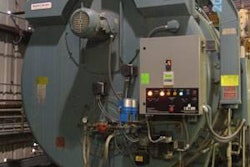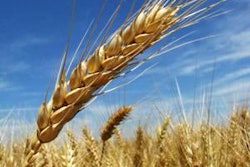An animal feed project aimed at reducing antibiotic use in swine, as well as poultry and aquatic species, is being spearheaded by Lallemand Animal Nutrition and Bionov and has won the support of the French government, which is providing the companies with a grant of €2.9 million to assist with further development.
The collaborative project, Melofeed, focuses on the development and marketing of animal feed ingredients extracted from melons and was officially unveiled at SPACE 2012 on September 12. It plans to develop a range of nutritional ingredients for animal nutrition based on the unique properties of an antioxidant molecule, Superoxyde Dismutase, which is naturally present in a specific variety of melons. According to a project spokeswoman, its preventive use in animal nutrition “should help reinforcing the sanitary status and natural defenses of farmed animals and contribute to enhancing farms overall performances.” Primary target species are swine, poultry and aquatic species, but future developments will also concern ruminants and horses.
The project comprises three main parts:
- Development of specific cultivation methods and industrial processes, formulation and galenic, in order to optimize the production of an existing ingredient based on concentrated melon juice for animal nutrition (Melofeed, distributed by Lallemand Animal Nutrition).
- In vitro studies and documentation about the modes of action and biological effects of Melofeed.
- Validation in animal production setting of the ingredient’s benefits: immunity, reproduction, maturity, performances.
“We know it works, because melon pulp has been around for several years, but we have now started production trials to build up a bigger database on its results in pigs,” said David Guillou, Lallemand’s applied R&D manager/monogastrics. “The trials will also look at sperm quality, and we will be releasing the first results within the next six to nine months.”
Matthieu Baulez, product manager for monogastric applications, said supplementation with certain antioxidants substances, like vitamin E and selenium, has become a common practice. “But the science of antioxidants tells us that we can do better: protection against reactive oxygen species depends on several complementary pathways like, for example, the vitamin E, SOD and glutathione peroxidase (seleno-dependant enzyme) pathways,” said Baulez. “Hence, supplementing animal diets with a cocktail of complementary antioxidants rather than saturating one single pathway with one molecule even at high dosage, at a given critical time, can offer better protection. This is why we decided to expend our antioxidant offer with Melofeed — an SOD- and catalase-rich ingredient.”















